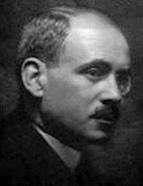

One can understand that it was necessary to remake the genealogy of reactionism in the light of the “sacraments of Tradition”, the persistence and recurrence of habits, ancestral practices and customs, a type of deposit of the unconscious experience of the centuries, which would delineate a national soul, the Volksgeist of Romantic historiography (the “your genealogical tree, the titles of your majorat, the rights of your people, the Portugalia, the Portugalia: bona regio”, De vita et moribus, 1931, 141). But in this ideological programme the invocation of history and the apologue of patriotic exemplarity, in the very ultra-romantic spring of nationalism, would be used as an empirical and normative support for a practical demonstration of the nation, held as an undeniable fact a fortiori, and a theoretical deduction of the inevitability of the anti-liberal, anti-republican and anti-communist counter-revolution, as from the moment when the first echoes of the Soviet revolution of 1917 reached the Cais das colunas in the centre of Lisbon. As a Ciceronian magistra vitae, history would be the experimental (and deductive) stage which would permit the study and observation of authoritarian ontogeny, if not even an authentic ontology, as Sardinha writes in the early days, “I will demonstrate (…) from within our history, this complex identification of the population factor as the Authority element” (Glossário dos tempos, 147).
From this the providentialist view of history elected, as a last resort, what was denominated an authentic epistemology of reactionism, instituting it as a practical fundament (the energy principle) that sought to reconnect past and future separated in the present by the republican apostrophe and by the hiatus of free-thought, a “heresy” that had triumphed with the bourgeois revolutions and the material civilisation of capitalism. Thus, the traditionalist reconstitution aimed, through a symbolic inventory, to rebuild the bridges of organic and corporative fusion between nation and state, a primary integralist requisite in the wish for a national identity and conscience (Archer, Nação e nacionalismo..., 66-70). However, the study of history, as a nationalist praxis confined to the “lesson of fact” in search of the “chastity of history” of which Fustel de Coulanges spoke, that of the “intimate unity of the Patria” or that of a positive idealism using Grasset’s expression, aimed to ensure the symbolic resurrection of a collective past more imagined than studied: “They are the spiritual treasures of the Past which guard within themselves the powerful germ of redemption. Therefore, in uncertain tempestuous periods, historians always prepared the assault for any fallen patrias sure of redemption”.
